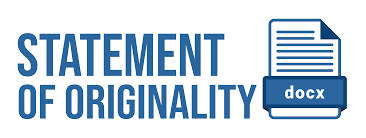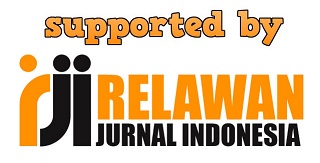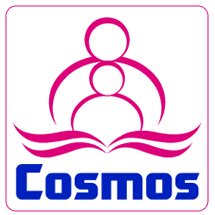Duolingo for Vocabulary Mastery: Empowering Students in the Digital Age of Language Learning
DOI:
https://doi.org/10.61672/eji.v8i2.2767Keywords:
Effect, Duolingo, Vocabulary mastery.Abstract
This study aims to evaluate the effectiveness of the Duolingo application in improving vocabulary mastery of 10th grade students at SMKN 2 Palangka Raya in the academic year 2022/2023. The traditional teaching method at SMKN 2 Palangka Raya tends to be monotonous and less interactive, thus, less effective in improving students' vocabulary mastery. This study proposes the integration of the Duolingo application as a learning tool to provide a more interactive and engaging learning experience, as well as to enhance students' vocabulary mastery. A quasi-experimental design is used to compare two classes: X MLPB 2 (conventional method) and X AKL 2 (using Duolingo). Both classes consist of 20 students. Quantitative methods, including normality tests, ANOVA, and Post Hoc, are used for analysis. The results show that the use of Duolingo significantly improves students' vocabulary mastery. The average Post-Test scores increased from 51.857 to 80.714 for class AKL 2, and from 44.706 to 75.147 for class MPLB 2. The integration of technology such as Duolingo has proven to be effective in improving student learning outcomes. Recommendations from this study include increasing the use of technology in language learning curriculum to optimize learning outcomes.
References
Abin, R., & Andas, N. H. (2022). The Effect of Using Autonomous Learning Model by Duolingo-Assisted to Improve Students’ Vocabulary Mastery at X Class of SMPN 3 Buton Tengah. EduLine: Journal of Education and Learning Innovation, 2(4), 415–426. https://doi.org/10.35877/454ri.eduline1258
Ahour Touran and Parisa Salamzadeh, Vocabulary Learning Strategies Used by Poor Iranian High School Students. (International Journal of Language Teaching and Research, 2(1), 2014), p.12.
Ajisoko, P. (2022). Using Duolingo Apps To Improve English Reading Comprehension of Engineering Students in Universitas Borneo Tarakan. Exposure : Jurnal Pendidikan Bahasa Inggris, 11(1), 1–6. https://doi.org/10.26618/exposure.v11i1.6452
Ajisoko, P. (2020). The use of duolingo apps to improve English vocabulary learning. International Journal of Emerging Technologies in Learning, 15(7), 149–155. https://doi.org/10.3991/IJET.V15I07.13229
Ali, N. (2021). The Effect Of Duolingo Usage On Students’ Vocabulary Mastery Of Seventh-Grade Students At Mts Pab 1 Helvetia. Jurnal Serunai Bahasa Inggris, 13(1), 23–30. https://doi.org/10.37755/jsbi.v13i1.347
Alvons Habibie. (2020). To Enhance Efl Students ’ Motivation in Learning. Jurnal Bahasa Dan Literature, 9(1), 13–26.
Ambara, I. W. (2020). The Effect of Using Duolingo Application in Learning Vocabulary at SMAN 2 Karangan. Journal Of English Language Teaching Learning and Literature, 3(1), 48–55.
Aulia, H. R., Wahjuningsih, E., & Andayani, R. (2020). Effect of Duolingo Application on Students’ English Vocabulary Mastery. ELTR Journal, 4(2)
Aziz, I. N., Hoesny, M. U., Keislaman, I., Faqih Gresik, A., & Malang, P. N. (2022). Duolingo Application as Media in Teaching Vocabulary Mastery. Journal of English Education and Technology, 03(02), 107–120. http://jeet.fkdp.or.id/index.php/jeet/issue/current
Basuki, Y., Damayanti, A., & Dewi, S. U. (2018). Vocabulary Coursebook for EFL Learners of Higher Education in Indonesia. International Journal of Education and Literacy Studies, 6(4), 122. https://doi.org/10.7575/aiac.ijels.v.6n.4p.122
Fathi, J., Alipour, F., & Saeedian, A. (2018). Enhancing Vocabulary Learning and Self-Regulation via a Mobile Application: An Investigation of the Memorise App. Journal of Modern Research in English Language Studies, 5(1), 27–46.
Faradiena, R., Widiastuty, H., & Qamariah, Z. (2022). An analysis of reading materials quality of English textbook "Bahasa Inggris" for SMK Negeri 2 Palangka Raya. PROJECT: Professional Journal of English Education, 5(5). Retrieved from ISSN 2614-6258
Guaqueta, C. A., & Castro-Garces, A. Y. (2018). The Use of Language Learning Apps as a Didactic Tool for EFL Vocabulary Building. English Language Teaching, 11(2), 61. https://doi.org/10.5539/elt.v11n2p61
Miningsih, D. I. (2021). Exploring the Preservice Teachers’ Perceptions Toward the Use of Duolingo in Teaching Vocabulary To Young Learners. Jurnal Bahasa Lingua Scientia, 13(1), 41–64. https://doi.org/10.21274/ls.2021.13.1.41-64
Kusumadewi, H., & Widyastuti, M. (2018). The Effects of Using Duolingo Towards Students’ Vocabulary Mastery. Indraprasta PGRI, 13(2), 172–186.
Matra, S. D. (2020). Duolingo Applications as Vocabulary Learning Tools. Journal of English Literature, Linguistics, and Education, 1(1), 46–52. https://englishtest.duolingo.com
Miftakh, F., & Yulianti, R. (2021). Secondary Students’ Perception and Experiences on Duolingo-Mediated General Vocabulary Learning. ELT in Focus, 4(December). https://doi.org/10.35706/eltinfc.v4i2.6138
Sabarun, Widiati, U., Suryati, N., & Azman, M. N. A. (2023). Measuring the Effect of Learning Style Preference on Learners’ Argumentative Essay Writing Across Different Writing Strategies. Journal of Higher Education Theory and Practice, 23(5), 187–201. https://doi.org/10.33423/jhetp.v23i5.5935
Sabarun, Widiati, U., Suryati, N., & Hajimia, H. (2023). Exploring the Effectiveness of Graphic Organizers on EFL Learners’ Writing Performance Across Different Learning Style Preference and Gender at Higher Education. Journal of Higher Education Theory and Practice, 23(16), 60–73. https://doi.org/10.33423/jhetp.v23i16.6463
Downloads
Published
Issue
Section
License
Copyright (c) 2024 Umi Mujiarni, Sabarun, Hesti Widiastuty

This work is licensed under a Creative Commons Attribution 4.0 International License.




















